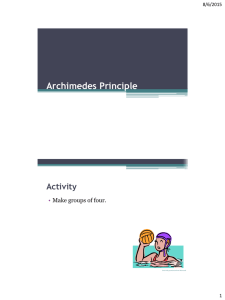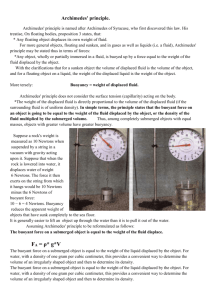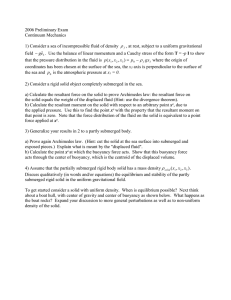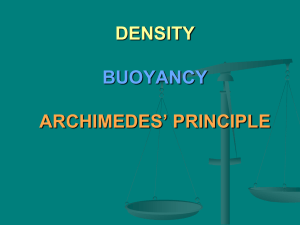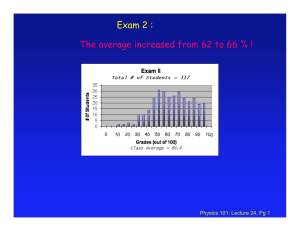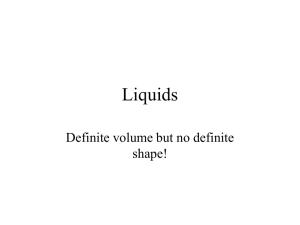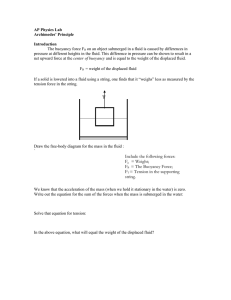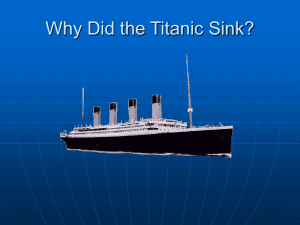Archimedes´ principle
advertisement
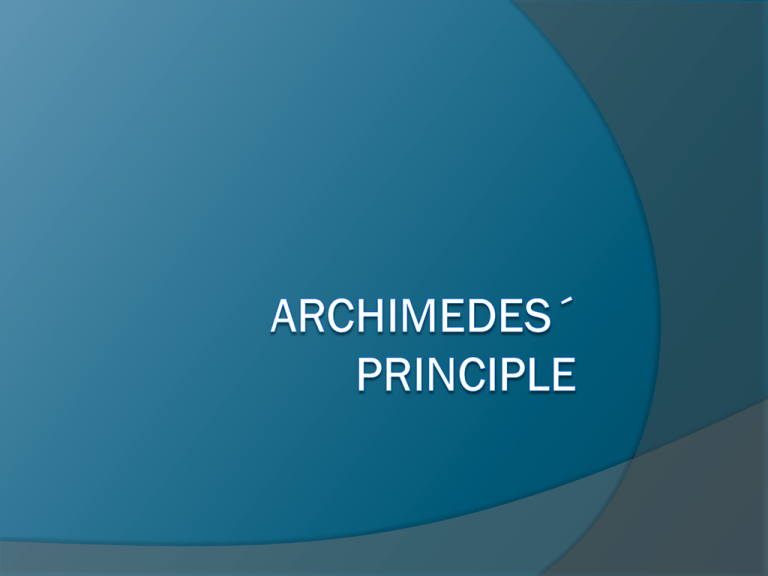
http://www.yout ube.com/watch? v=y0SnFCs9z1g The question of why some objects sink in fluids while others float can be answered using the law of buoyancy. This law is known as Archimedes' principle, after the ancient Greek scientist who discovered it. http://www.y outube.com/ watch?v=ijj5 8xD5fDI Archimedes Principle It can be expressed as ‘Any object, wholly or partially immersed in a fluid, is buoyed up by a force equal to the weight of the fluid displaced by the object. According to a tale, Archimedes discovered this law while taking a bath. After making this discovery, he is said to have leapt out of his bathtub and ran through the streets of Syracuse naked shouting "Eureka!". If the weight of the water displaced is less than the weight of the object, the object will sink An object will float, with the weight of the water displaced equal to the weight of the object. It states that "any body partially or completely submerged in a fluid is buoyed up by a force equal to the weight of the fluid displaced by the body. " The weight of an object acts downward, and the buoyant force provided by the displaced fluid acts upward. If these two forces are equal, the object floats. If you’ve ever tried to push a beach ball underwater, you’ve felt this principle in action. As you push the ball down, it pushes back up. In fact, a big beach ball can be tough to hold underwater. As a physicist in a bathing suit, you may wonder, “What’s happening here?” UNDERSTANDING QUESTIONS 1. Who discover the principle of buoyancy? 2. How did he come up with the conclusion? 3. Explain the principle and use 3 examples, with graphics. 4. What´s the opposite force to gravity (acts upward)? 5. Is it the same if you talk about a ship with cargo or empty? Yes /no? why? 6. g______, b_____ and density work together to determine what floats your boat, or sinks your ship

